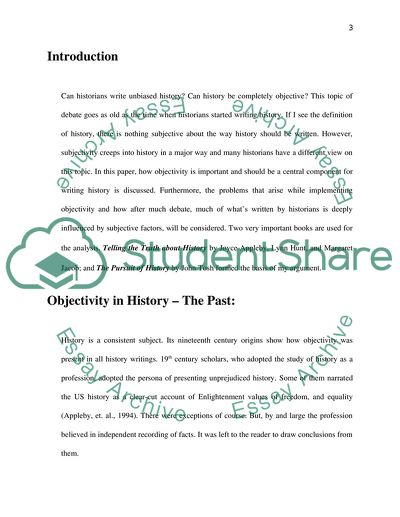Cite this document
(Objectivity in History Research Paper Example | Topics and Well Written Essays - 2000 words, n.d.)
Objectivity in History Research Paper Example | Topics and Well Written Essays - 2000 words. Retrieved from https://studentshare.org/history/1742495-according-to-appleby-et-al-and-tosh-when-and-how-did-objectivity-become-a-central
Objectivity in History Research Paper Example | Topics and Well Written Essays - 2000 words. Retrieved from https://studentshare.org/history/1742495-according-to-appleby-et-al-and-tosh-when-and-how-did-objectivity-become-a-central
(Objectivity in History Research Paper Example | Topics and Well Written Essays - 2000 Words)
Objectivity in History Research Paper Example | Topics and Well Written Essays - 2000 Words. https://studentshare.org/history/1742495-according-to-appleby-et-al-and-tosh-when-and-how-did-objectivity-become-a-central.
Objectivity in History Research Paper Example | Topics and Well Written Essays - 2000 Words. https://studentshare.org/history/1742495-according-to-appleby-et-al-and-tosh-when-and-how-did-objectivity-become-a-central.
“Objectivity in History Research Paper Example | Topics and Well Written Essays - 2000 Words”, n.d. https://studentshare.org/history/1742495-according-to-appleby-et-al-and-tosh-when-and-how-did-objectivity-become-a-central.


